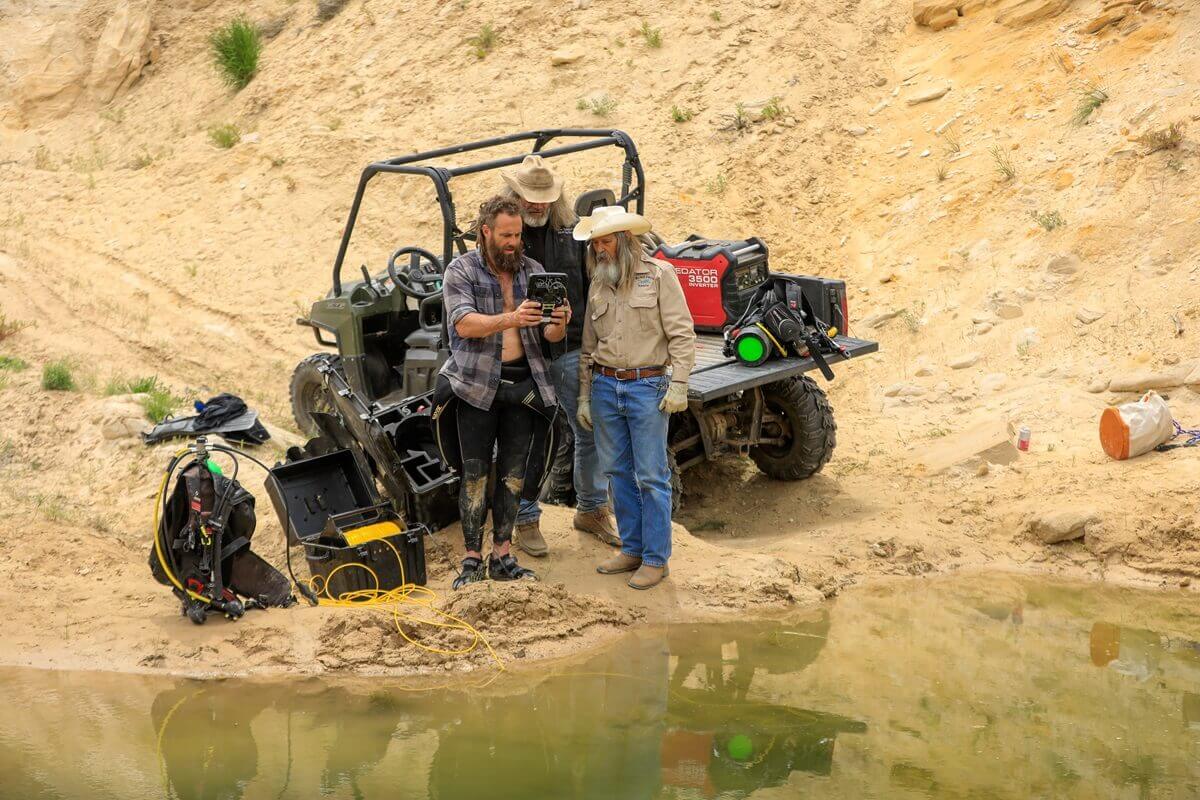Ownership Dispute and Legal Challenges
The Blind Frog Ranch, a 160-acre property in Utah steeped in mystery and local lore, is at the center of a complex legal battle. The core issue revolves around disputed ownership of the land and the valuable mineral rights beneath it. Duane Ollinger, a Texas oilman, acquired the ranch in 2016 and has since reported discoveries such as a box of gold coins and a possible underground tunnel, fueling public fascination. However, Ollinger’s ownership is being challenged by a group claiming to be the rightful heirs. This group initiated a lawsuit in 2019, contesting Ollinger’s claim and creating a legal tug-of-war over the property’s future. This ongoing legal battle has significant implications, potentially setting precedents for property rights and mineral rights disputes across Utah.
Key Players and Timeline of Events
The key players in this legal drama include:
- Duane Ollinger: Current holder of the ranch’s title, acquired in 2016. He aims to continue exploring the ranch’s mysteries if his ownership is upheld.
- The Claimants: A group asserting their legal right to the property, who filed suit against Ollinger in 2019. Their plans for the ranch if they win remain uncertain, potentially including selling or developing the land.
- Utah State Government: A significant player due to its claim on the ranch’s mineral rights, further complicating the ownership dispute. The state’s involvement raises questions about the balance between private land ownership and government regulatory authority.
Timeline:
- 2016: Duane Ollinger acquires Blind Frog Ranch.
- 2019: Lawsuit filed against Ollinger by the claimants.
- 2020: Utah State Government intervenes, asserting its mineral rights.
Community Impact and the “Mystery” Factor
The Blind Frog Ranch lawsuit has divided the local community, with residents taking sides. This division highlights the lawsuit’s broader impact on local social dynamics and public opinion. Adding to the intrigue are the ranch’s reported history of paranormal activity and legends of hidden treasures. While these stories capture public interest and fuel speculation, it’s crucial to differentiate between documented facts related to the lawsuit and unsubstantiated rumors. The mystery surrounding Blind Frog Ranch undoubtedly contributes to the public’s fascination, but it’s essential to focus on the factual aspects of the legal proceedings.
Discoveries and Speculation
Several intriguing discoveries have been reported on the ranch:
- Medieval Treasure: A wooden box containing unidentified metallic objects, possibly dating back over 500 years, was retrieved from a cavern using explosives. The box is currently under expert analysis, and its contents remain undisclosed.
- Precious Metals: Rumors persist of a gold ingot hidden within an underground cavern, adding to the allure of potential hidden wealth.
- Ancient Waterways: Speculation about flooded “Aztec waterways” suggests potential historical and archaeological significance, requiring further investigation.
- Geological Wonders: The existence of a “black hole inside a mountain,” described as a possible cave, sinkhole, or unique geological formation, adds to the ranch’s enigma.
These discoveries, while fascinating, require careful examination. Some researchers suggest the “black hole” may be a previously undocumented geological formation, while others propose it could be a natural cave system. It is important to approach such claims with healthy skepticism, awaiting official confirmation before drawing conclusions. Law enforcement and independent researchers are actively investigating these findings, and new information is expected to emerge. The public remains captivated by the unfolding mystery of Blind Frog Ranch, eager to learn the truth behind these intriguing discoveries.
Legal Proceedings and Potential Outcomes
The legal proceedings are ongoing, with the claimants challenging Ollinger’s ownership and the state asserting its mineral rights. The outcome of this case could impact future property rights disputes, particularly those involving mineral rights and government intervention. Several scenarios are possible:
- Ollinger retains ownership: This is likely if he successfully defends his claim against the claimants and clarifies the state’s mineral rights. However, the claimants could appeal, prolonging the legal battle.
- Claimants gain ownership: This scenario is possible if they prove their legal right to the property. Ollinger could appeal, and the state might renegotiate mineral rights with the new owners.
- State gains significant control: Depending on the specific regulations and the judge’s interpretation, the state could gain increased control over the ranch, potentially setting a new precedent for state intervention in private land ownership.
The outcome of this multifaceted lawsuit will have far-reaching implications for property rights, mineral claims, and the balance between private ownership and state regulatory power in Utah. It is a developing story with many potential twists and turns. The public is captivated, and this complex legal battle will undoubtedly continue to draw attention as it unfolds.










